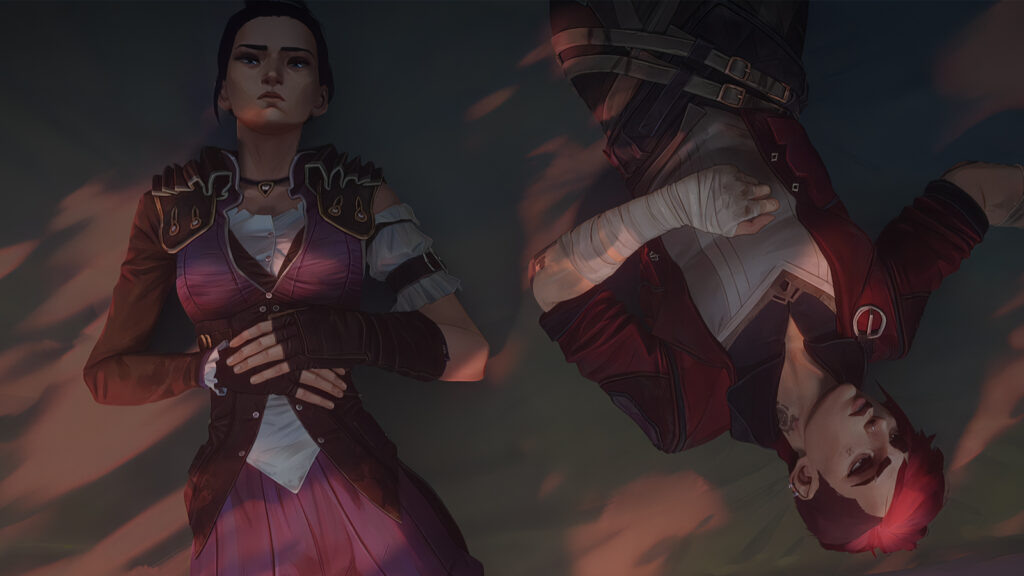
Photo credit: Riot Games/Fortiche
I finally binge-watched Arcane in a hotel room while doing my introvert recuperation from a massive multi-day academic conference. All I can say is I’m so glad I waited (because if I had to wait months for season 2? Nope! I needed it ALL!) and if you haven’t seen it yet – if you like gay stuff and fantasy stuff, and odds are you do because you get my newsletter! – go watch it! Give yourself the gift of slow-burn sapphic yearning in a tragic quasi-colonial setting with misused magic and good intentions gone terribly wrong!
These tropes are basically my reason for living, but as I’m rewatching it with my wife, who is not as enamoured as I am of gorgeous visuals, she keeps pointing out the plot holes and various things that just happen without any realistic character basis. And honestly, I also noticed these things, which in a book would bother me far more. The fact that I just went with it for Arcane made me think about that famous quote about opera by W.H. Auden: No good opera plot can be sensible, for people do not sing when they are being sensible. Only one named character sings in Arcane (remember who?), but it feels like an opera – right down to the song of love and death that opera, and epic fantasy, both tend to explore. (Epic fantasy also > common sense.)
Arcane works not only because it’s got love and death everywhere you look, but because it explores them with intense music — the soundtrack is incredible, even when only used in background. When the songs are used in full, like Sting and Ray Chen’s We Had Everything, it is emotionally stunning. When every fight scene is a wild, choreographed dance of blood, brutality, and magic with pounding music beneath it – that gets at emotion in a different way. The connection between viewer and viewed comes through these non-verbal methods piling all on the structure of character and setting and plot.
And while I love live-action musicals, the operatic possibilities of animation go so well with the unmundanity of deep emotion and music – real emotion shared through unrealistic means. For me, Arcane leaned into the possibilities of its medium so extraordinarily well that it made all the deep emotional connections work, even where at points where the narrative or characterizations were thin.
It’s been fun since writing this (it originally went out in my December 2024 newsletter) to hear from someone who played the game circa 2015 about how the original characters worked (you know who you are) 🙂